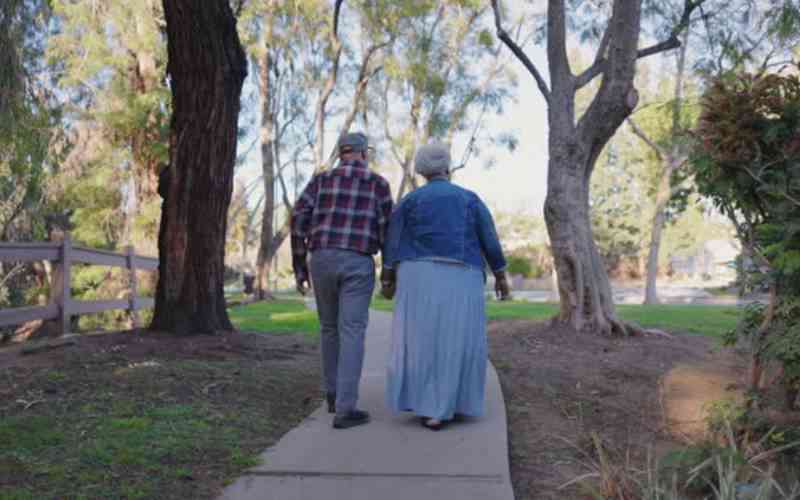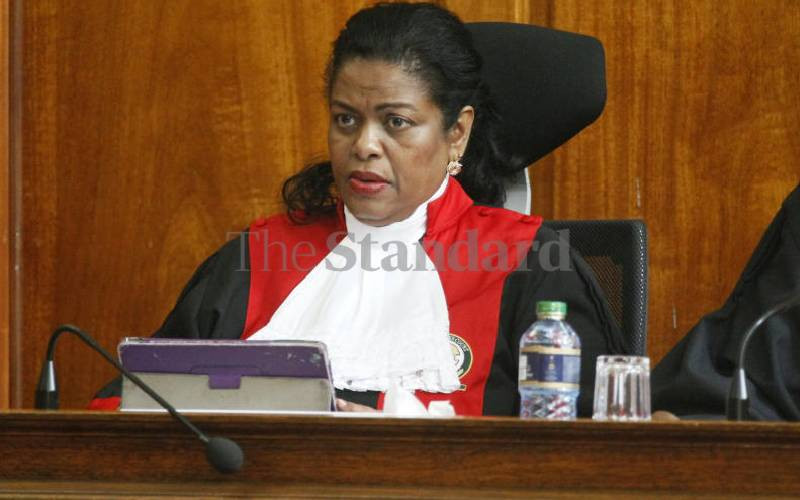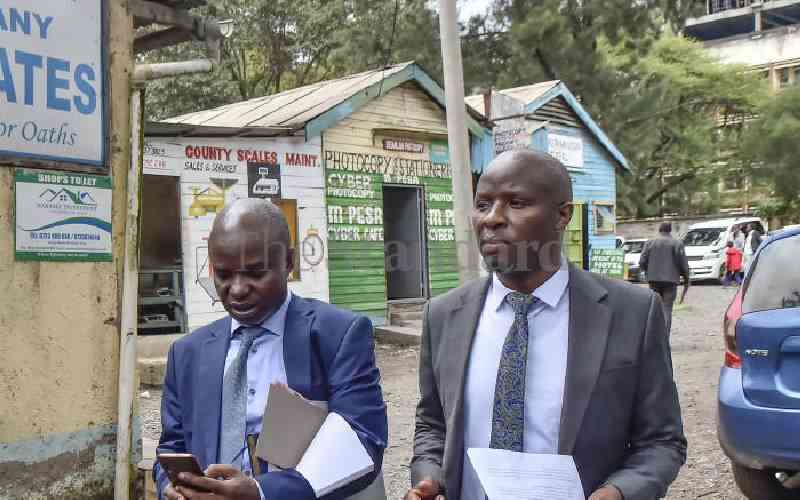Monday, the Supreme Court ruled that the Judicial Service Commission (JSC) has no powers to interfere with judges tenure of office albeit this was said in context not so relevant to the case before the said court.
I agree that judges at times can comment on matters of policy and law in situation where convergence emerges on matters of great public interest. It is what is known as Obiter dicta.
Tenure for judges can only be disturbed or interfered with by a tribunal.
Opinion by Supreme Court judges Kaplana Rawal, Jackson Ojwang', Philip Tunoi and Njoki Ndungu has introduced interesting twist given that JSC has been resolute that it has powers to compel judges who have attained 70 years to retire. Chief Justice Willy Mutunga did not share in the Obiter comments.
It is noteworthy that Justices Tunoi and Rawal as members of the bench that heard Salat's case got enmeshed in the issuing unsolicited opinion given that they have suits challenging the decision by JSC that the duo should retire at the age of 70.
However, the said justices sat in the election-related case legitimately as the issue of their retirement had not received the elevation it has now at the time the case was being heard.
Public interest
The decision has ramifications on a matter of great public interest. It may now be alleged unjustifiably thought that it breached the well-known principle of law that one cannot be judge in his or her own cause. It shall ignite more fire to the debate which, in my view, is not reasonable.
But let me now turn to the Obiter dicta itself. When it is juxtaposed to the provisions of the Sixth Schedule to Article 262 of the Constitution titled Transitional and Consequential Provisions which deals with existing obligations, laws and rights, it becomes necessary to pause the question whether truly, in law JSC as constituted, has powers to decide on the issue of retirement age of Judges, especially those that were appointed under the now repealed constitution.
It is a legitimate query captured well by Obiter dicta by the Supreme Court.
The Constitution of Kenya 2010 does not provide a contrary process as to how rights and obligation that arose before the August 27, 2010, are to be treated, save as stated.
This is a matter that should strictly be left to the courts to interpret. JSC is not a court and therefore lacks the necessary legal capacity to make any decision touching on the age when judges appointed under the repealed Constitution should retire.
JSC has become rigid in the process and has appeared overly keen to meddle on matters outside its jurisdiction. It is the High Court and others above it that should ultimately construe all laws in force immediately before the effective date in respect to rights, duties and obligations of the State.
The issue of when the such judges should leave office ought to be left to judicial process as gleaned from Article 48 to decide.
The Supreme Court has most probably set itself on a path of construing the various laws existing before the effective date, with emphasis on alterations, adaptations, qualifications and exceptions in order to steady situations which those rights, obligations and duties depend on in conformity with the Constitution of Kenya 2010.
Stay informed. Subscribe to our newsletter
Quick fixes
It has the potential of heralding clarity and certainty in an area that JSC has attempted to do quick fixes, which may undeservedly generate ill will.
The Constitution of Kenya 2010 did not assign any power to JSC to decide on the retirement age of all those appointed before the effective date.
The actions of JSC in the recent past touching on the affected judges are amenable to Judicial Review orders. The interpretation of the Constitution must not be left to JSC on matters as sensitive as retirement of judges.
JSC's composition alone makes it unsuitable to make any decision in that direction. It is not a tribunal by itself.
Usurping of powers and awarding themselves authority without requisite law must be deprecated.
JSC should instead concentrate on its core mandate, which many observers doubted if the team has been executing it well thus far.
There should be patience and decorum as we all await the decision by the courts on petitions by various judges who feel strongly that their retirement is being rushed yet it is tainted by an illegality.
 The Standard Group Plc is a
multi-media organization with investments in media platforms spanning newspaper
print operations, television, radio broadcasting, digital and online services. The
Standard Group is recognized as a leading multi-media house in Kenya with a key
influence in matters of national and international interest.
The Standard Group Plc is a
multi-media organization with investments in media platforms spanning newspaper
print operations, television, radio broadcasting, digital and online services. The
Standard Group is recognized as a leading multi-media house in Kenya with a key
influence in matters of national and international interest.
 The Standard Group Plc is a
multi-media organization with investments in media platforms spanning newspaper
print operations, television, radio broadcasting, digital and online services. The
Standard Group is recognized as a leading multi-media house in Kenya with a key
influence in matters of national and international interest.
The Standard Group Plc is a
multi-media organization with investments in media platforms spanning newspaper
print operations, television, radio broadcasting, digital and online services. The
Standard Group is recognized as a leading multi-media house in Kenya with a key
influence in matters of national and international interest.







